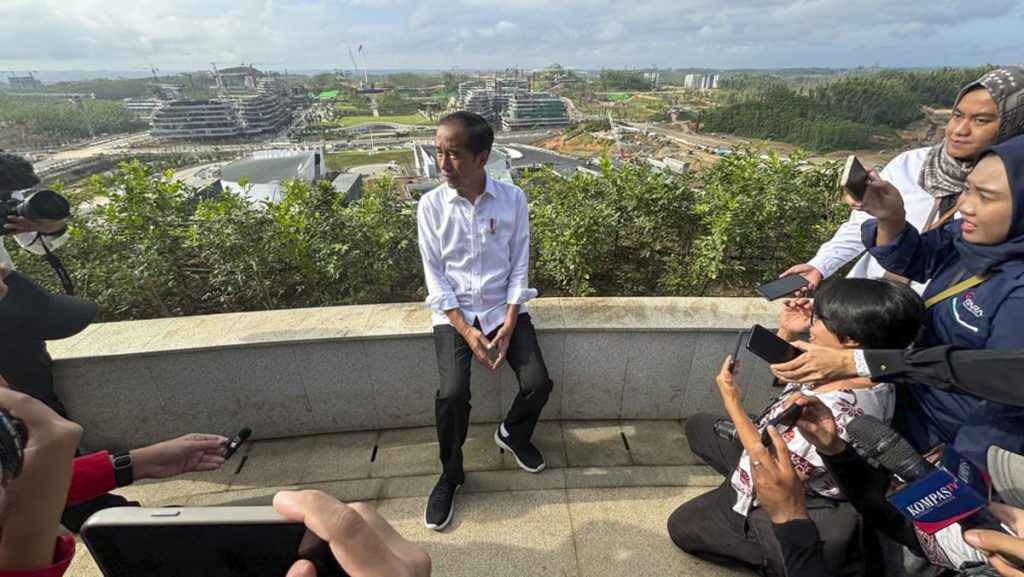Indonesian President Joko Widodo, also known as Jokowi, spent his first night in the newly constructed eagle-shaped palace of the proposed capital, Nusantara. Despite facing numerous challenges such as construction delays, lack of foreign investment, and managerial and land issues, Jokowi is determined to push forward with the project before his term ends in October. He emphasized that the development of the new capital is a long-term endeavor that could take up to 20 years to complete.
The Garuda Palace, with its unique design comprised of 4,650 blades that form the wings of an eagle, serves as the focal point of Nusantara. Jokowi acknowledged that he experienced trouble sleeping during his first night in the palace but assured reporters that essential amenities such as water, electricity, and internet services are now available. He did not specify the duration of his stay in the new capital but made it clear that the project represented a significant undertaking that would require patience and perseverance.
The new capital, situated on the island of Borneo, is a monumental infrastructure project with an estimated cost of US$32 billion. Despite its remote location approximately 1,200 kilometers from Jakarta, the current capital, Nusantara aims to address the issues of overcrowding, traffic congestion, and environmental degradation in Jakarta. Jokowi’s administration has dedicated significant resources to the development of the new capital in hopes of creating a modern, sustainable city that can accommodate Indonesia’s growing population.
As Jokowi navigates the challenges of developing Nusantara, he faces the task of attracting foreign investment to support the project. The success of the new capital hinges on securing funding and expertise from international partners to ensure its long-term viability. In addition to financial considerations, Jokowi must address issues related to land acquisition, infrastructure development, and governance to ensure the smooth implementation of the capital relocation.
While Jokowi has expressed determination to see the completion of Nusantara, critics have raised concerns about the feasibility and sustainability of the project. Questions have been raised about the environmental impact of constructing a new city in the jungle, as well as the potential displacement of local communities and disruption to biodiversity. Addressing these concerns will be crucial for Jokowi’s administration to gain public support and ensure the success of the ambitious new capital project.
Overall, the development of Nusantara represents a significant milestone in Indonesian history, signaling a bold vision for the future of the nation. As Jokowi works to overcome obstacles and realize his vision of a modern, sustainable capital, the success of Nusantara will depend on effective governance, strategic planning, and robust international partnerships. By addressing challenges head-on and prioritizing long-term sustainability, Jokowi aims to leave a lasting legacy through the creation of Indonesia’s future capital city.













